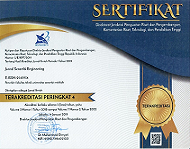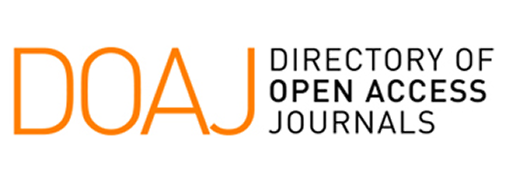The Role of Resilient Supply Chains in Enhancing Competitiveness and Performance of SMEs: A Case Study in the SMI Sector
Keywords:
Resilient Supply Chain, Competitiveness, MSME PerformanceAbstract
This study aims to explore the role of resilient supply chains in improving the competitiveness and performance of micro, small and medium enterprises (MSMEs) in Makassar City. The research method used is a mixed method approach involving 100 respondents from various sectors including food and beverages, handicrafts, and textiles. The results show that 75% of the respondents have implemented elements of resilient supply chains, such as supplier diversification and the use of information technology, which contribute to improved operational efficiency. Regression analysis shows a significant positive relationship between the implementation of resilient supply chains and the competitiveness of MSMEs, with a regression coefficient of 0.65 (p < 0.01). In addition, 70% of the respondents reported an increase in sales and customer satisfaction after adopting resilient supply chain strategies. These findings are consistent with the literature that emphasizes the importance of flexibility and adaptability in supply chains. This study recommends that MSMEs in Makassar City continue to adopt best practices in supply chain management and seek support from the government to create an ecosystem conducive to business growth. The results of this research are expected to contribute significantly to the development of supply chain management theory and practice in the small and medium industrial sector in Indonesia.
References
[1] C. Yolanda, “Peran Usaha Mikro, Kecil Dan Menengah (UMKM) Dalam Pengembangan Ekonomi Indonesia,” Jurnal Manajemen Dan Bisnis, vol. 2, no. 3, pp. 170–186, Apr. 2024, doi: 10.36490/jmdb.v2i3.1147.
[2] P. S. Quaralia, “Kerjasama Regional dalam Rantai Pasokan Pertanian untuk Mencapai Ketahanan Pangan Berkelanjutan: Studi kasus ASEAN,” Padjadjaran Journal of International Relations, vol. 4, no. 1, p. 56, Jan. 2022, doi: 10.24198/padjir.v4i1.37614.
[3] F. Sabouhi, M. S. Jabalameli, and A. Jabbarzadeh, “An optimization approach for sustainable and resilient supply chain design with regional considerations,” Comput Ind Eng, vol. 159, p. 107510, Sep. 2021, doi: 10.1016/j.cie.2021.107510.
[4] A. Mail, N. Chairany, and A. Fole, “Evaluation of Supply Chain Performance through Integration of Hierarchical Based Measurement System and Traffic Light System: A Case Study Approach to Iron Sheet Factory,” Makassar, Oct. 2019. doi: 10.59160/ijscm.v8i5.2584.
[5] M. Kharub, R. S. Mor, and S. Rana, “Mediating role of manufacturing strategy in the competitive strategy and firm performance: evidence from SMEs,” Benchmarking: An International Journal, vol. 29, no. 10, pp. 3275–3301, Nov. 2022, doi: 10.1108/BIJ-05-2021-0257.
[6] A. Mohammed, N. Zubairu, M. Yazdani, A. Diabat, and X. Li, “Resilient supply chain network design without lagging sustainability responsibilities,” Appl Soft Comput, vol. 140, p. 110225, Jun. 2023, doi: 10.1016/j.asoc.2023.110225.
[7] A. Fole, “Peningkatan Kinerja Pada Industri Kerajinan Songko Recaa (Studi Kasus : UKM ISR Bone),” Yogyakarta, Jul. 2022. Accessed: Aug. 06, 2024. [Online]. Available: https://dspace.uii.ac.id/handle/123456789/39404
[8] R. Maharjan and H. Kato, “Resilient supply chain network design: a systematic literature review,” Transp Rev, vol. 42, no. 6, pp. 739–761, Nov. 2022, doi: 10.1080/01441647.2022.2080773.
[9] G. R. Putranto, “Pengaruh Supply-Chain Resilience terhadap Kinerja Perusahaan dan Keunggulan Bersaing: Studi Empiris UMKM di Kota Yogyakarta,” pp. 1–138, 2022, Accessed: Mar. 21, 2025. [Online]. Available: https://dspace.uii.ac.id/handle/123456789/44050
[10] Z. J. H. Tarigan, H. Siagian, and F. Jie, “Impact of Internal Integration, Supply Chain Partnership, Supply Chain Agility, and Supply Chain Resilience on Sustainable Advantage,” Sustainability, vol. 13, no. 10, p. 5460, May 2021, doi: 10.3390/su13105460.
[11] I. Irfan, M. S. U. K. Sumbal, F. Khurshid, and F. T. S. Chan, “Toward a resilient supply chain model: critical role of knowledge management and dynamic capabilities,” Industrial Management & Data Systems, vol. 122, no. 5, pp. 1153–1182, May 2022, doi: 10.1108/IMDS-06-2021-0356.
[12] S. Alonso-Muñoz, R. González-Sánchez, C. Siligardi, and F. E. García-Muiña, “New Circular Networks in Resilient Supply Chains: An External Capital Perspective,” Sustainability, vol. 13, no. 11, p. 6130, May 2021, doi: 10.3390/su13116130.
[13] E. Kusrini, K. N. Safitri, and A. Fole, “Design Key Performance Indicator for Distribution Sustainable Supply Chain Management,” in 2020 International Conference on Decision Aid Sciences and Application, DASA 2020, Institute of Electrical and Electronics Engineers Inc., Nov. 2020, pp. 738–744. doi: 10.1109/DASA51403.2020.9317289.
[14] R. K. Singh, S. Modgil, and A. Shore, “Building artificial intelligence enabled resilient supply chain: a multi-method approach,” Journal of Enterprise Information Management, vol. 37, no. 2, pp. 414–436, Apr. 2024, doi: 10.1108/JEIM-09-2022-0326.
[15] A. Shishodia, R. Sharma, R. Rajesh, and Z. H. Munim, “Supply chain resilience: A review, conceptual framework and future research,” The International Journal of Logistics Management, vol. 34, no. 4, pp. 879–908, Jun. 2023, doi: 10.1108/IJLM-03-2021-0169.
[16] D. Ivanov, “Two views of supply chain resilience,” Int J Prod Res, vol. 62, no. 11, pp. 4031–4045, Jun. 2024, doi: 10.1080/00207543.2023.2253328.
[17] R. Dubey, A. Gunasekaran, S. J. Childe, S. Fosso Wamba, D. Roubaud, and C. Foropon, “Empirical investigation of data analytics capability and organizational flexibility as complements to supply chain resilience,” Int J Prod Res, vol. 59, no. 1, pp. 110–128, Jan. 2021, doi: 10.1080/00207543.2019.1582820.
[18] Y. Wang, F. Yan, F. Jia, and L. Chen, “Building supply chain resilience through ambidexterity: an information processing perspective,” International Journal of Logistics Research and Applications, vol. 26, no. 2, pp. 172–189, Feb. 2023, doi: 10.1080/13675567.2021.1944070.
[19] A. Shishodia, R. Sharma, R. Rajesh, and Z. H. Munim, “Supply chain resilience: A review, conceptual framework and future research,” The International Journal of Logistics Management, vol. 34, no. 4, pp. 879–908, Jun. 2023, doi: 10.1108/IJLM-03-2021-0169.
Downloads
Published
Issue
Section
License
Copyright (c) 2025 Januar Kulsaputro, Asrul Fole, Khoerun Nisa Safitri, Nurul Aini (Author)

This work is licensed under a Creative Commons Attribution 4.0 International License.













